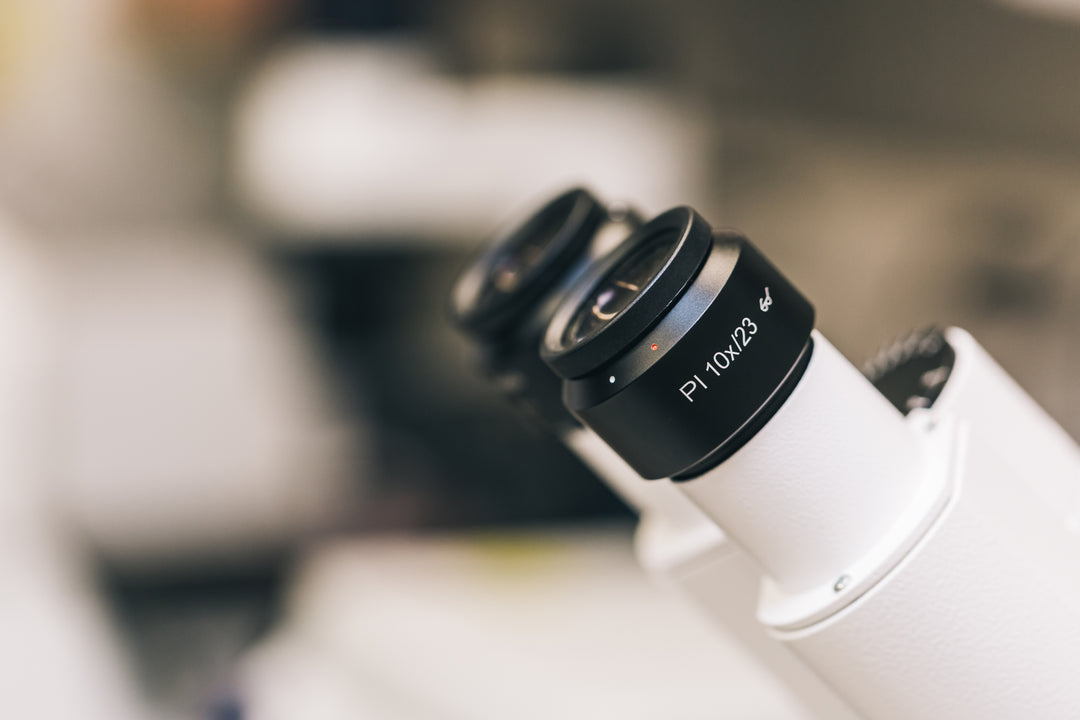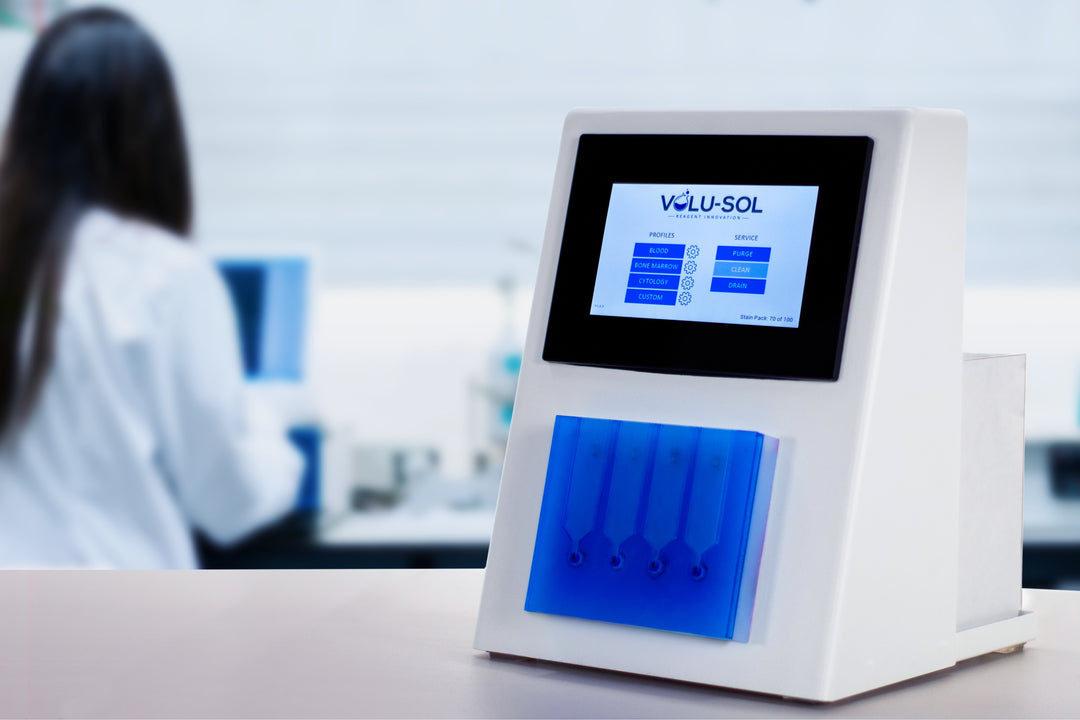The Evolution of Digital Pathology: Embracing the Future Beyond the Manual Microscope
The world of pathology is undergoing a seismic shift. The days of the manual microscope, a stalwart in laboratories for over a century, are giving way to the digital age. As technology advances, so does the field of pathology, revolutionizing the way we diagnose and treat diseases. Volusol is at the forefront of this transformation, formulating stains that are perfectly suited for digital applications.
The Digital Pathology Revolution
Digital pathology refers to the practice of converting traditional glass slides into digital images. This shift allows pathologists to view and analyze slides on a computer screen, making it easier to share and collaborate. The advantages are numerous:
-
Increased Efficiency and Accuracy: Digital slides can be analyzed using sophisticated software, which can highlight areas of concern, reducing the chance of human error. Automated image analysis can assist in providing faster and more accurate diagnoses.
-
Enhanced Collaboration: With digital slides, pathologists from different parts of the world can collaborate in real-time. This capability is particularly valuable for rare or complex cases that require expert opinions from multiple specialists.
-
Better Record-Keeping: Digital slides can be stored indefinitely without degradation. This permanence ensures that patient records are always available for future reference, facilitating long-term studies and follow-up care.
-
Remote Access: Digital pathology enables remote work, allowing pathologists to analyze slides from virtually anywhere. This flexibility is crucial, especially in areas with a shortage of specialists.
Leading Technologies in Digital Pathology
Several technologies are spearheading the digital pathology revolution. Notable among them are CellaVision and Scopio Labs, both of which have made significant advancements in digital microscopy and image analysis.
-
CellaVision: CellaVision specializes in digital cell morphology, offering solutions that automate the process of analyzing blood and body fluid smears. Their technology enhances workflow efficiency and accuracy by providing high-quality digital images that can be shared and reviewed by multiple pathologists. CellaVision’s automated systems are particularly beneficial in laboratories with high sample volumes, as they reduce the manual workload and improve turnaround times.
-
Scopio Labs: Scopio has developed a high-resolution, full-field imaging platform that allows for the digitization and analysis of hematology slides. Their technology provides unparalleled detail and accuracy, making it easier to identify and diagnose blood disorders. The platform’s advanced software includes AI-driven image analysis, which can assist pathologists in identifying abnormalities with greater precision.
Volusol’s Role in the Digital Transition
As the industry shifts towards digital pathology, the need for stains that perform well in digital applications becomes paramount. Volusol is leading the charge by formulating stains that meet these new demands. Here's how:
-
High-Resolution Imaging: Volusol’s stains are designed to produce high-contrast and clear images, essential for accurate digital analysis. The quality of staining directly impacts the readability of digital slides, making Volusol's precision staining a critical component.
-
Consistency and Reproducibility: Digital pathology requires consistent staining to ensure that the software analysis is accurate. Volusol’s stains provide uniform results, reducing variability and enhancing the reliability of diagnoses.
-
Adaptability to Automated Systems: As laboratories adopt automated slide stainers, such as Volusol’s Definitive DCM Slide Stainer for Digital Cell Morphology, the compatibility of stains with these systems is vital. Volusol’s stains are optimized for use in automated environments, ensuring seamless integration and efficiency.While traditional stainers like the Hematek and Wescor Aerospray have served us well for a long time, the Definitive DCM is better suited for the future.
-
Innovation in Staining Techniques: Volusol is continually researching and developing new staining techniques to keep pace with technological advancements. This commitment to innovation ensures that their products remain at the cutting edge of digital pathology.
The Future of Pathology
The transition from manual microscopy to digital pathology is not just a trend; it’s the future of the field. As technology continues to evolve, so too will the methods and tools used by pathologists. Volusol’s dedication to developing stains that are compatible with digital applications is a testament to their commitment to advancing the science of pathology.
In conclusion, the shift to digital pathology marks a significant milestone in the history of medical diagnostics. With enhanced efficiency, accuracy, and collaboration, the benefits are clear. Volusol’s innovative stains are perfectly positioned to support this digital revolution, ensuring that pathologists have the tools they need to provide the best possible care for their patients. The future of pathology is bright, and it’s digital.




